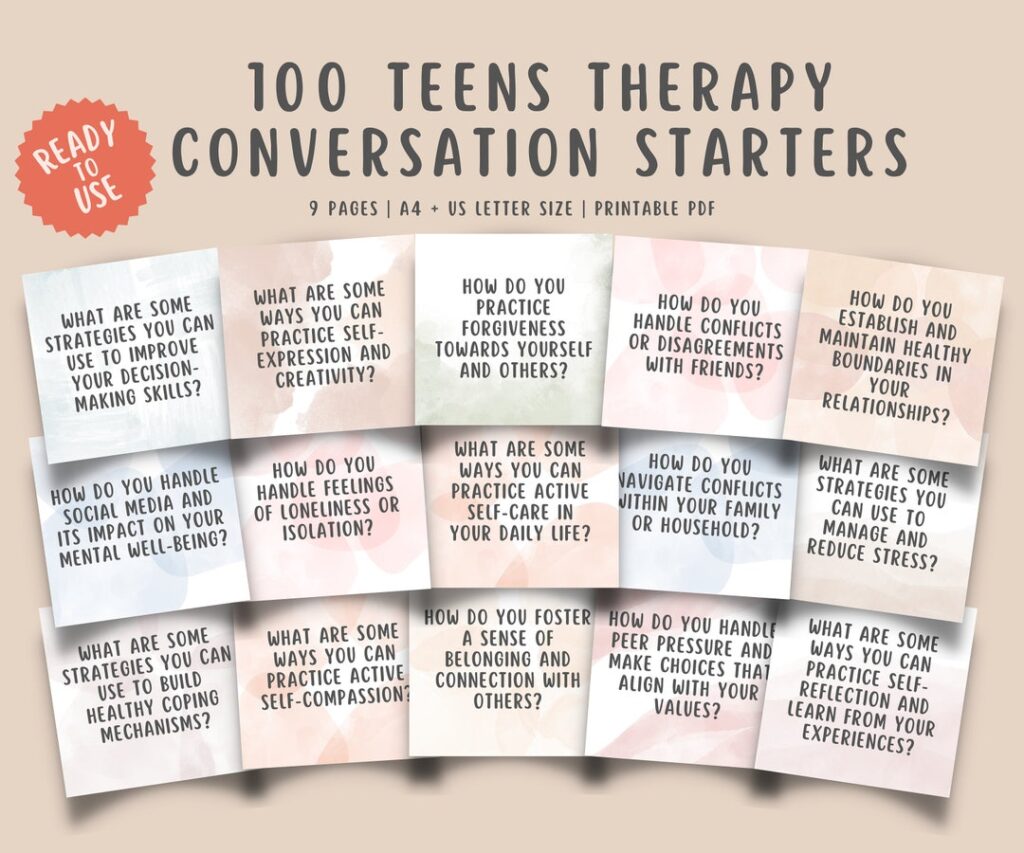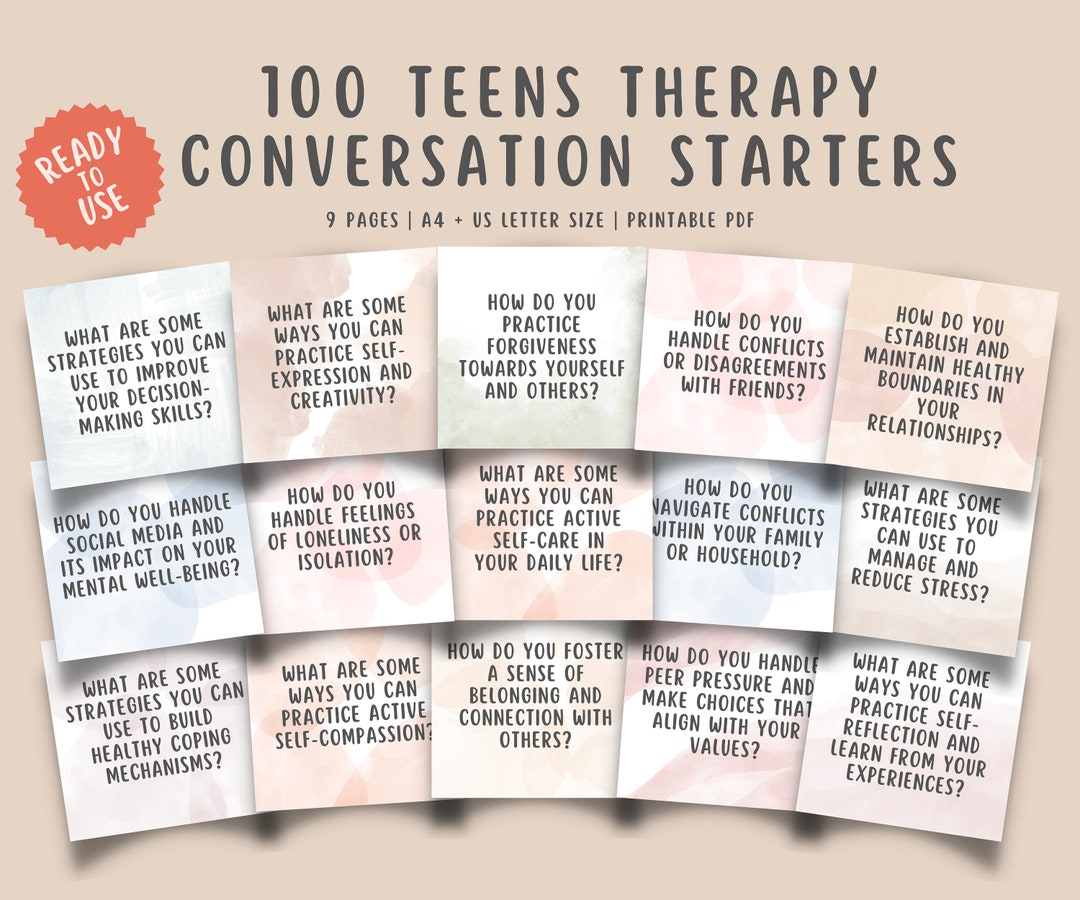
Navigating Adolescence: Answering the Burning Questions Teens Have Today
Adolescence is a period of profound change, a complex tapestry woven with threads of physical, emotional, and social development. For teenagers, this journey is often marked by a barrage of questions, uncertainties, and anxieties. Understanding the landscape of questions teens grapple with is crucial for parents, educators, and anyone who seeks to support them through these formative years. This article delves into some of the most pressing questions teens have today, offering insights and guidance to help them navigate the challenges and embrace the opportunities that adolescence presents.
Identity and Self-Discovery
One of the central questions teens face revolves around identity. Who am I? What do I believe in? Where do I belong? The search for self is a cornerstone of adolescence, and it can be a turbulent process. Teens may experiment with different styles, interests, and social groups as they try to define themselves. This experimentation is normal and necessary, but it can also lead to confusion and self-doubt.
- “Who am I?”: This fundamental question drives much of adolescent behavior. Teens are actively constructing their sense of self, often influenced by peers, media, and personal experiences.
- “What are my values?”: As teens mature, they begin to develop their own moral compass. They may question the values they were raised with and explore different ethical frameworks.
- “Where do I fit in?”: The desire for belonging is strong during adolescence. Teens seek acceptance and validation from their peers, which can sometimes lead to conformity and pressure to fit in.
Supporting Identity Exploration
Parents and educators can support teens in their identity exploration by providing a safe and non-judgmental environment for them to express themselves. Encourage them to explore their interests, engage in meaningful activities, and connect with diverse perspectives. It’s important to remember that identity formation is a process, not a destination. [See also: Supporting Teen Mental Health]
Relationships and Social Dynamics
Relationships take center stage during adolescence. Romantic relationships, friendships, and family dynamics all contribute to the social landscape of a teen’s life. Navigating these relationships can be challenging, as teens learn to communicate effectively, manage conflict, and establish healthy boundaries. Social media also plays a significant role in shaping teen relationships, both positively and negatively.
- “How do I make friends?”: Social anxiety is common among teens, especially when starting at a new school or joining a new group. They may struggle with initiating conversations and building meaningful connections.
- “How do I deal with peer pressure?”: The pressure to conform to peer norms can be intense during adolescence. Teens may feel pressured to engage in risky behaviors, such as drinking, smoking, or engaging in sexual activity, to gain acceptance.
- “How do I handle conflict in relationships?”: Disagreements and misunderstandings are inevitable in any relationship. Teens need to learn how to communicate their needs and feelings effectively, resolve conflicts constructively, and set healthy boundaries.
Building Healthy Relationships
Teaching teens about healthy relationship dynamics is essential. This includes communication skills, conflict resolution strategies, and the importance of mutual respect and consent. It’s also crucial to address issues such as bullying, cyberbullying, and dating violence. Open communication between teens and trusted adults can help them navigate these complex social situations. Teenagers often have questions teens about friendships and romance. [See also: Teen Dating Safety Tips]
Academic and Career Aspirations
Academic performance and future career prospects weigh heavily on the minds of many teens. They face pressure to succeed in school, choose a career path, and prepare for college or other post-secondary options. The sheer number of choices can be overwhelming, and teens may feel anxious about making the “right” decisions.
- “What should I study?”: Choosing a major or career path can feel like a monumental decision. Teens may struggle to identify their interests and strengths, and they may worry about making a choice that will limit their future options.
- “How do I manage stress and pressure?”: The academic workload and extracurricular activities can take a toll on teens’ mental and emotional well-being. They may struggle with time management, perfectionism, and anxiety about grades.
- “How do I prepare for the future?”: The transition from adolescence to adulthood can be daunting. Teens may feel unprepared for the responsibilities of independent living, such as managing finances, finding a job, and navigating relationships.
Guiding Academic and Career Choices
Providing teens with guidance and support in their academic and career planning is crucial. This includes helping them explore their interests and skills, providing information about different career options, and offering resources for college planning and financial aid. It’s important to emphasize that there is no one “right” path and that success can take many different forms. Many questions teens have are about their future. [See also: College Application Guide for Teens]
Mental and Physical Health
Mental and physical health are paramount during adolescence. Teens are particularly vulnerable to mental health issues such as anxiety, depression, and eating disorders. They also face challenges related to physical health, such as puberty, body image concerns, and substance abuse. Addressing these issues requires a holistic approach that considers the interconnectedness of mind and body.
- “Why do I feel so anxious/depressed?”: Mental health challenges are increasingly common among teens. They may struggle with feelings of anxiety, sadness, hopelessness, or worthlessness.
- “How do I deal with body image issues?”: Media portrayals of unrealistic beauty standards can contribute to body image dissatisfaction among teens. They may feel pressured to conform to these standards and engage in unhealthy behaviors to achieve them.
- “How do I make healthy choices?”: Teens face numerous choices related to their physical health, such as diet, exercise, and substance use. They may struggle to make informed decisions due to peer pressure, lack of information, or impulsivity.
Promoting Well-being
Promoting mental and physical well-being requires a multi-faceted approach. This includes providing access to mental health services, educating teens about healthy lifestyle choices, and fostering a supportive and inclusive environment. It’s also important to address issues such as bullying, discrimination, and social isolation, which can negatively impact teens’ mental health. Many questions teens have revolve around their bodies and minds. [See also: Recognizing Signs of Teen Depression]
Technology and Social Media
Technology and social media have become integral parts of teen life. While these tools offer numerous benefits, such as access to information and opportunities for connection, they also pose challenges. Teens may struggle with issues such as cyberbullying, online privacy, and addiction to social media. Navigating the digital world requires critical thinking skills and responsible online behavior.
- “How do I protect my privacy online?”: Teens may not fully understand the implications of sharing personal information online. They may be vulnerable to privacy breaches, identity theft, and online predators.
- “How do I deal with cyberbullying?”: Cyberbullying can have devastating effects on teens’ mental and emotional well-being. They may feel isolated, humiliated, and even suicidal.
- “How do I balance screen time?”: Excessive screen time can interfere with sleep, academic performance, and social interactions. Teens may struggle to limit their screen time and develop healthy habits.
Navigating the Digital World
Educating teens about responsible online behavior is essential. This includes teaching them about online safety, privacy settings, and the potential consequences of their online actions. It’s also important to promote critical thinking skills and media literacy, so teens can evaluate information critically and avoid falling prey to misinformation. The questions teens ask about social media are complex. [See also: Social Media Safety Tips for Teens]
Conclusion
Adolescence is a time of profound growth and transformation, but it is also a time of uncertainty and challenge. By understanding the questions teens face, we can provide them with the support and guidance they need to navigate this complex stage of life. Open communication, empathy, and a willingness to listen are essential for fostering healthy development and empowering teens to reach their full potential. Addressing these questions teens have is vital for a healthy society. Answering questions teens have is paramount. Helping teens find answers to their questions teens ask is important. The questions teens have truly matter. Many adults have forgotten the questions teens face. Remembering the questions teens have is key. The range of questions teens ask is vast. The significance of these questions teens have cannot be overstated.

